When you are driving around on a day-to-day basis, it is inevitable that at some point your car is going to break down. But what happens when the vehicle that has broken down isn’t your average family sedan, but a semi-trailer or other heavy vehicle?
Situations like these quickly become the domain of heavy-duty tow truck companies.
While regular towing companies pay a significant role in moving vehicles out of dangerous situations every day, when it comes to heavy-duty towing it requires a unique set of skills and a range of specialised equipment.
What’s the Difference Between Normal Towing and Heavy-Duty Towing?
Apart from one towing service being for standard cars and the other being for heavy vehicles, the biggest difference is in the equipment used. You’ll be familiar with the flatbed style of tow truck, and these trucks are limited in terms of the weight capacity of what they can tow. Heavy-duty towing on the other hand, works with vehicles that generally won’t fit on a standard flatbed tow truck.
These trucks are equipped with winches that can pull thousands of kilos in weight, with hydraulic systems that can lift and manoeuvre large loads. In addition, they often have the ability to reach heavy vehicles that have overturned, and they tend to use a winch system to tow trucks instead of a flatbed.
What Vehicles Utilise Heavy-Duty Towing?
Heavy-duty towing is essentially the transportation of large vehicles and equipment that exceed the capacity of standard towing services. This category includes:
Commercial Trucks and Trailers: Semi-trucks, tractor-trailers, and other large commercial vehicles.
Buses and RVs: Public transportation buses and recreational vehicles.
Construction and Farming Equipment: Bulldozers, excavators, tractors, and other heavy machinery.
Industrial Vehicles: Tankers, garbage trucks, and other specialised industrial vehicles.
These vehicles often weigh several tons and may have unique dimensions, requiring specialised towing equipment and techniques.
Equipment Used in Heavy-Duty Towing
Heavy-duty towing necessitates robust and sophisticated equipment, differing significantly from the tools used in regular towing. Key equipment includes:
Heavy-Duty Tow Trucks: These trucks are larger and more powerful, equipped with enhanced braking systems and stronger engines. They can handle loads exceeding 7,000 kilos.
Rotator Tow Trucks: These are advanced heavy-duty trucks with rotating arms that can lift and move vehicles from awkward positions.
Large Flatbed Trucks: For vehicles that cannot be towed with their wheels on the ground, large flatbed trucks offer a secure solution.
Winches and Recovery Gear: Heavy-duty winches, chains, and straps are essential for securing and recovering large vehicles.
Specialised Skills
The ability to tow heavy vehicles is only just the start. These heavy-duty tow trucks are driven by highly trained professionals who have a unique skillset, including:
Knowledge of Weight Distribution: Loading and transporting these trucks requires a deep understanding of weight distribution to ensure safe and stable transportation. Just like Jenga, a slight miscalculation can lead to a disastrous tower (or truck) collapse.
Towing Tech Savvy: Modern heavy-duty tow trucks are equipped with advanced recovery systems. Drivers are proficient in using this technology to diagnose problems where needed and ensure a smooth recovery process.
Roadside Safety: Safety is paramount, particularly when you are dealing with larger or heavier vehicles than normal. Heavy-duty tow operators understand and adhere to strict towing regulations to ensure the safety of themselves, the vehicles involved, and everyone on the road.
Adept at Assessing Situations: Accidents involving large vehicles can be complex situations. Heavy-duty tow operators are adept at assessing situations, strategising recovery plans, and carefully executing them to minimise damage and get things moving again.
Situations Where Regular Towing Won’t Do
When you break down, it’s second nature to call a tow truck, but when do you call a heavy-duty tow vehicle instead of a regular one?
Heavy Vehicle Breakdown: Stranded semi-trucks, trailers, and buses are no match for a regular tow truck. Their size and weight require the strength and expertise of heavy-duty towing.
Construction Vehicle Breakdown: Bulldozers, excavators, and other construction equipment fall under the domain of heavy-duty towing. Their unique shapes and weight distribution require specialised equipment for safe recovery.
Off-Road Situations: Heavy-duty tow trucks are often equipped to handle off-road recoveries. Whether it’s a tractor stuck in the mud or a 4WD off the beaten path, they have the ability to reach and rescue vehicles in situations normal tow trucks can’t.
Accidents: Accidents involving large vehicles can leave them in precarious positions. Heavy-duty tow trucks have the lifting power and manoeuvring ability to safely extract them from ditches, rollovers, and other unfortunate situations.
Legal and Regulatory Considerations
Heavy-duty towing is subject to stringent regulations to ensure safety and compliance. These regulations cover:
Weight Limits and Permits: Operators must adhere to weight restrictions and obtain special permits for transporting oversized loads.
Insurance Requirements: Higher insurance coverage is mandatory due to the increased risks associated with towing large vehicles.
Driver Qualifications: Operators need a multi combination licence in Western Australia to tow a gross vehicle mass of more than 9000 kg.
Compliance with these regulations is critical to avoid legal issues and ensure the safety of both the tow drivers and the public.
It’s Not Just about Rescues and Retrievals
Heavy-duty towing isn’t just about rescuing or retrieving large vehicles. They play a crucial role in various industries, including:
Transportation: Heavy-duty towing companies help move oversized equipment and machinery, facilitating construction projects, industrial operations, and even the transportation of specialised equipment like wind turbines.
Event Support: Concerts, festivals, and other large-scale events often rely on heavy-duty towing for equipment transport and breakdown recovery.
Disaster Relief: In the aftermath of natural disasters, heavy-duty towing companies can play a vital role in clearing debris.
Heavy-duty towing is a specialised field that differs significantly from regular towing due to the size, weight, and complexity of the vehicles involved. It requires advanced equipment, extensive training, and strict adherence to safety and regulatory standards.
Understanding these differences is crucial for anyone involved in the towing industry or those who may require heavy-duty towing services.
If you find yourself in need of towing a heavier vehicle or need rescuing from an area a normal tow truck can’t reach, the experienced team at Westcoast 4X4 is ready to help. Pop our phone number in your phone and we’ll get you back on the road.
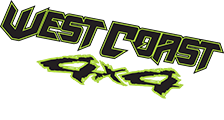
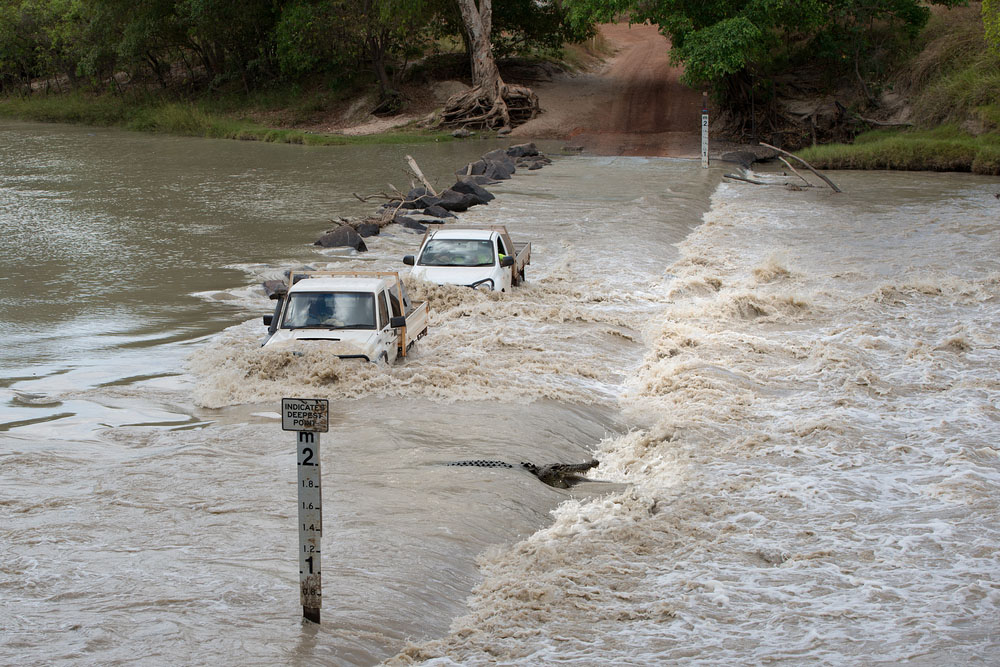
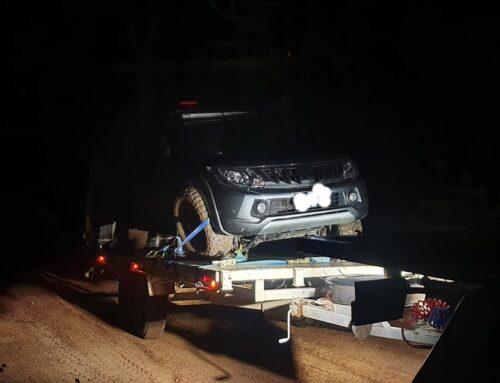
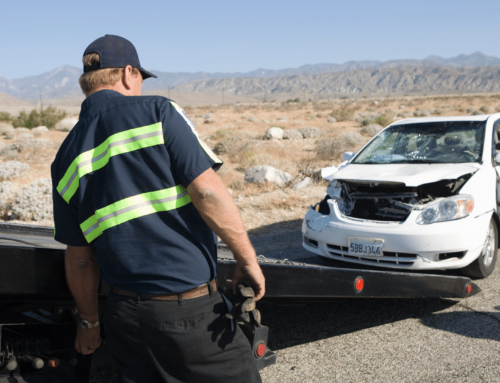
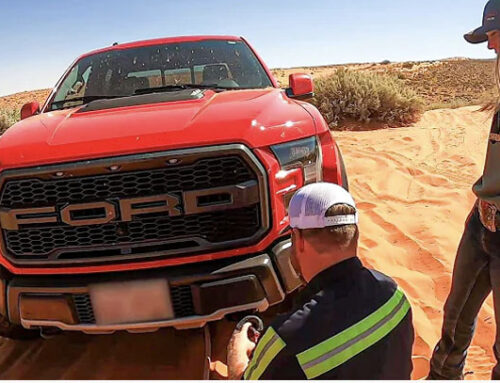
Leave A Comment